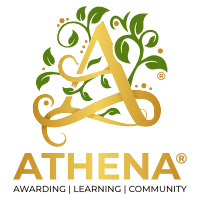Accredited Practitioner Register What to expect from Equine Facilitated Interactions
Equine Facilitated Interactions (sometimes referred to as Equine Facilitated Psychotherapy, Equine Therapy or Equine Facilitated Learning – see below) are principally ground-based activities whereby the interactions between horse(s) and human create a degree of insight or awareness for the human that serves as a foundation for personal healing or learning.
The sessions are generally experiential, which means that they are facilitated in such a way as to guide the interaction(s) towards reflective, therapeutic or learning activities. They are led by appropriately qualified and experienced practitioners. In this way they can create personal learning or personal insight, or develop individual wellbeing, or structure a genuinely therapeutic intervention.
To read about the Athena Herd Foundation definition of this work and why it is so effective here.
Independent research and opinion
The foundation of the experiential nature to the learning is well explained in this article by David Kolb and Karen Stock (2016).
There are now numerous articles published on the web underlining the therapeutic value of the process, for example these articles, “Equine Assisted Therapy: A Unique and Effective Intervention” in Psychology Today (Maker, 2019) and “Horses that heal: how equine therapy is helping people find peace of mind” in The Guardian (2015). These provide very accessible outline of the therapeutic benefit of these approaches.
Frederick et al (2015) “Not Just Horsing Around: The Impact of Equine-Assisted Learning on Levels of Hope and Depression in At-Risk Adolescents” demonstrate the positive impact on life and attitude achievable for young people, whilst the University of New England (2019) has demonstrated the positive calming effect on human Heart-rate Variability of Equine Assisted Psychotherapy.
Lastly, Leconstant and Spitz (2022) in their article in Frontiers “Integrative Model of Human-Animal Interactions: A One Health–One Welfare Systemic Approach to Studying HAI” provide a strong academic case for the coregulatory nature of these interactions based on shared underlying emotional behaviours.
What can a client or service user expect from a series of sessions?
There is no standard format for an Equine Facilitated Interaction session but there will in most cases be a mixture of facilitated discussion and equine interaction. Generally a client or service user will have a series of sessions. The following should be considered as an indicative outline to provide a general introduction to this work but should not be considered prescriptive for all practitioners and interactions.
Service users or clients should expect an initial discussion which aims to confirm the appropriateness of these interactions for them and make clear the foundations of staying safe in such an environment. As well as taking tome to explore and establish individual needs and requirements, and agree initial objectives.
Subsequent sessions will then be focussed on exercises undertaken alongside the horses which are framed around exploring the agreed objectives and outcomes for the client. These sessions are often described as experiential, which means that the learning and insight is derived from client experience. These insights are often not just about what happened there alongside the horse but reflective of every day life beliefs, feelings or behaviours.
The experiential cycle invites not only these insights into how we are or how we feel but can offer us a chance to approach something in another way, or from a different perspective, and then to experience the differences that arise. This creates a potential transferable change or learning for the client which can be taken away and explored between sessions.
In other cases the experience might create the starting point for engaging a more traditional therapeutic approach, be that room-based or still outdoors.
The sessions are likely to finish with a final reflective discussion, and often with a commitment to some action or practice between the sessions on the part of client or service user.
Different practices
Equine Facilitated Interactions are often generically described by other names such as Equine Assisted Psychotherapy, Equine Facilitated Psychotherapy, Equine Therapy, Equine Assisted Learning or Equine Facilitated Learning. There are also more specific practices such as Equine Facilitated Occupational Therapy or Equine Assisted Personal Development. More detail of these different practices can be found here.

